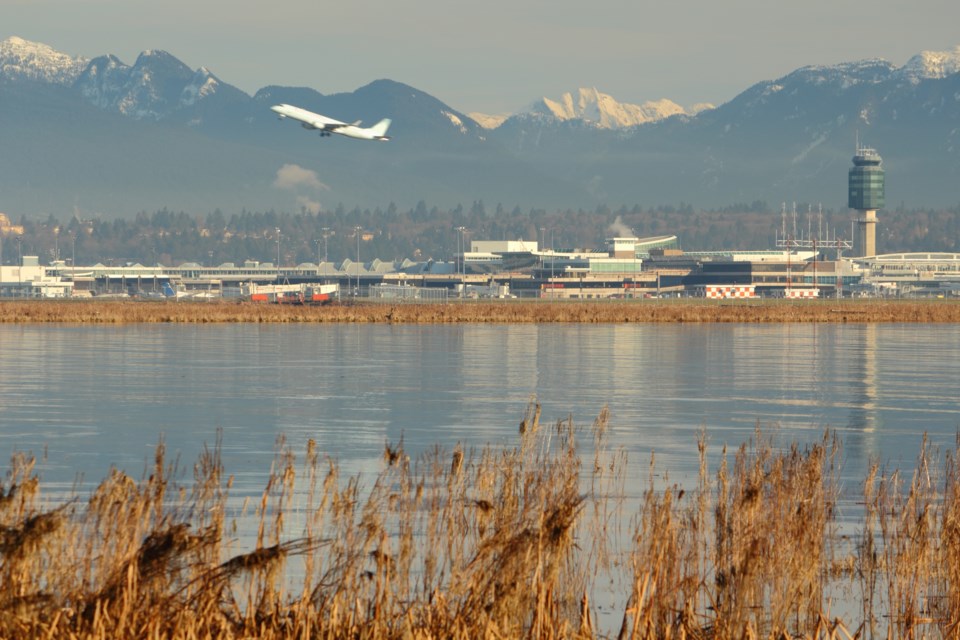Vancouver's growing links to Asian commerce grew stronger last month, when China’s largest business arbitration institution announced plans to set up its North American location in the city.
The China International Economic and Trade Arbitration Commission (CIETAC), which has resolved more than 30,000 commercial disputes in the last 60 years and has had decisions enforced in the United States, Great Britain, Japan and Germany, chose the location after a year of discussions with the Vancouver Economic Commission.
It is unclear whether the new office will collaborate with the BC International Commercial Arbitration Centre (BCICAC), which already provides a dispute resolution mechanism for businesses, but top provincial officials say they are optimistic.
“What we are hoping is that they can co-operate,” said Bruce Ralston, B.C.’s minister of jobs, trade and technology. “Because obviously, if this [Vancouver] is the jurisdiction for arbitration, a lot of Chinese companies will put [CIETAC] in their contracts – certainly between Chinese companies doing business here, but also maybe in their future dealings here…. I think [BCICAC] feels a little nudge in terms of competitive pressure, and that’s probably a good thing.”
BCICAC’s managing director, former B.C. attorney general and cabinet minister Barry Penner, said his organization wants to meet with CIETAC officials in Vancouver, adding that there maybe room for the two arbitration groups to co-operate.
“We do have some international cases, but we’re well established in the domestic market,” Penner said, noting that BCICAC moved to downtown Vancouver to be closer to B.C.’s commercial market. “We are interested to see in what ways we can collaborate…. I think that arbitration has matured and is becoming more and more of an alternative for businesses to settle disputes, and we look forward to talking more with them [CIETAC].”
Arbitration is often the preferred method of business dispute resolution, especially for small and medium-sized businesses.
Zhang Qikun, CIETAC’s representative arbitrator in Vancouver, said the organization’s presence may facilitate more links between B.C. businesses and Chinese companies, since Chinese small businesses may be more willing to do business in proximity to a CIETAC hearing site.
“CIETAC landing in Vancouver is a win-win situation for both CIETAC and Vancouver,” Zhang said. “For Vancouver … [it] becomes an arbitration destination of choice for foreign investors with CIETAC. The city has improved its soft investment environment by welcoming CIETAC’s landing, thus promoting trade and investment between Canada and China.”
The new location, by offering services in Mandarin, will cut down Chinese companies’ translation costs. For Chinese businesses whose contracts specify CIETAC for dispute resolution, it will allow them to stay in Vancouver for arbitration, further reducing costs.
“There is a practical need for Chinese arbitration in North America,” Zhang said. “Because of federal and provincial legislation, we can say that Vancouver is a city that’s amenable and open to the arbitration process. So the fact we selected here to set up our North American operations speaks volumes about our approval of Vancouver, B.C. and Canada.”
Zhang added that CIETAC adheres to established international arbitration standards and practices.
According to the China Law Blog by Los Angeles-based firm Harris Bricken, western businesses seeking a partnership with a Chinese company should consider a Chinese dispute resolution system in the relevant contract, since several Asian countries – including China and Indonesia – have “strong cultural aversions” to enforcement of foreign arbitration awards.
“Stated quite simply, Chinese courts do not generally take orders from foreign arbitrators,” said attorney Steve Dickinson in a China Law Blog report. “If you enter into a contract with a Chinese entity, you should plan to settle any contract disputes by legal action taken in China. The attempt to litigate or arbitrate outside of China is a mistake that must be avoided.”
The opening of a CIETAC office in Vancouver, which would give local companies access to a system of arbitration more likely to be accepted by Chinese businesses, will be a boon to the city, Ralston said.
“When I was in Guangzhou with the premier in January, we did meet with the commercial organization representative international trade organization there,” Ralston said. “One of the questions I asked them was ‘What about the possibility of arbitration as the business environment grows?’… This is part of the array of business services that would make a company feel more comfortable here, and I think this is a confirmation of Vancouver’s role as a commercial centre – and that’s only good for the B.C. economy.”
CIETAC has not announced when local operations will start.



